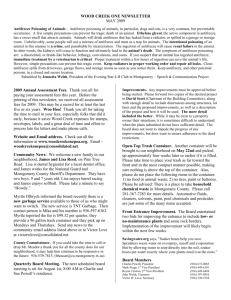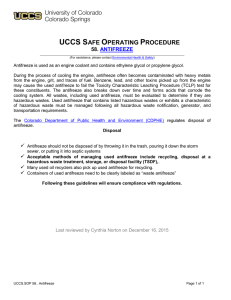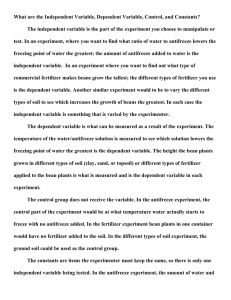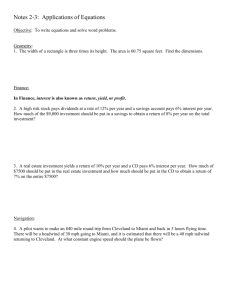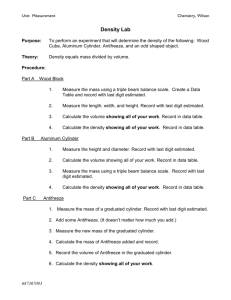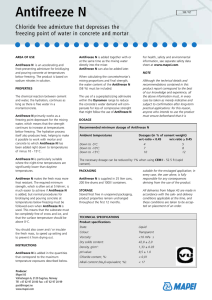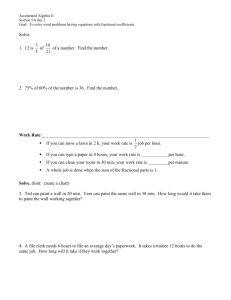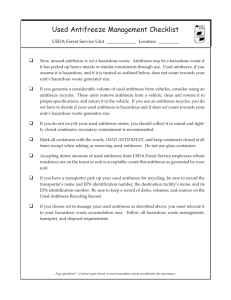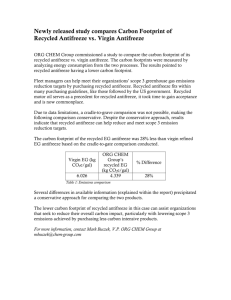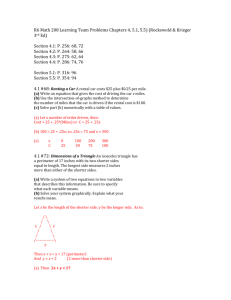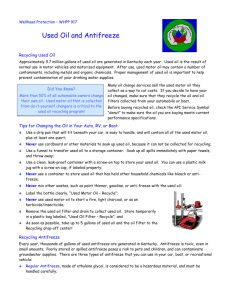Heat Transfer Problem Sheet Answer Key
advertisement
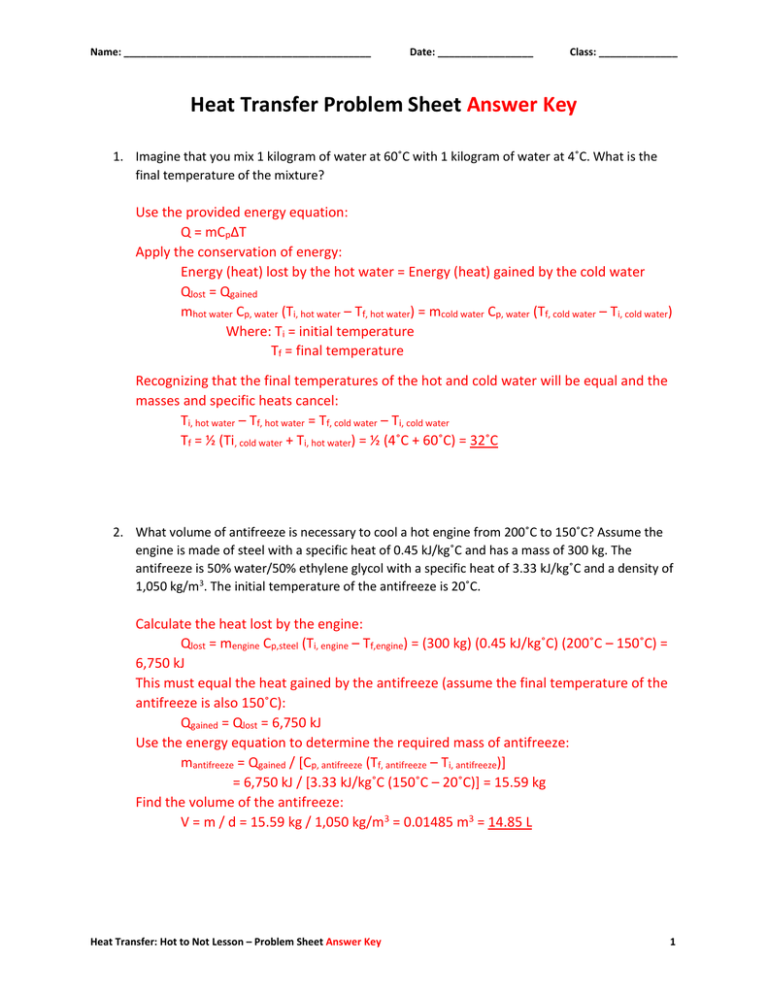
Name: ____________________________________________ Date: _________________ Class: ______________ Heat Transfer Problem Sheet Answer Key 1. Imagine that you mix 1 kilogram of water at 60˚C with 1 kilogram of water at 4˚C. What is the final temperature of the mixture? Use the provided energy equation: Q = mCpΔT Apply the conservation of energy: Energy (heat) lost by the hot water = Energy (heat) gained by the cold water Qlost = Qgained mhot water Cp, water (Ti, hot water – Tf, hot water) = mcold water Cp, water (Tf, cold water – Ti, cold water) Where: Ti = initial temperature Tf = final temperature Recognizing that the final temperatures of the hot and cold water will be equal and the masses and specific heats cancel: Ti, hot water – Tf, hot water = Tf, cold water – Ti, cold water Tf = ½ (Ti, cold water + Ti, hot water) = ½ (4˚C + 60˚C) = 32˚C 2. What volume of antifreeze is necessary to cool a hot engine from 200˚C to 150˚C? Assume the engine is made of steel with a specific heat of 0.45 kJ/kg˚C and has a mass of 300 kg. The antifreeze is 50% water/50% ethylene glycol with a specific heat of 3.33 kJ/kg˚C and a density of 1,050 kg/m3. The initial temperature of the antifreeze is 20˚C. Calculate the heat lost by the engine: Qlost = mengine Cp,steel (Ti, engine – Tf,engine) = (300 kg) (0.45 kJ/kg˚C) (200˚C – 150˚C) = 6,750 kJ This must equal the heat gained by the antifreeze (assume the final temperature of the antifreeze is also 150˚C): Qgained = Qlost = 6,750 kJ Use the energy equation to determine the required mass of antifreeze: mantifreeze = Qgained / [Cp, antifreeze (Tf, antifreeze – Ti, antifreeze)] = 6,750 kJ / [3.33 kJ/kg˚C (150˚C – 20˚C)] = 15.59 kg Find the volume of the antifreeze: V = m / d = 15.59 kg / 1,050 kg/m3 = 0.01485 m3 = 14.85 L Heat Transfer: Hot to Not Lesson – Problem Sheet Answer Key 1
